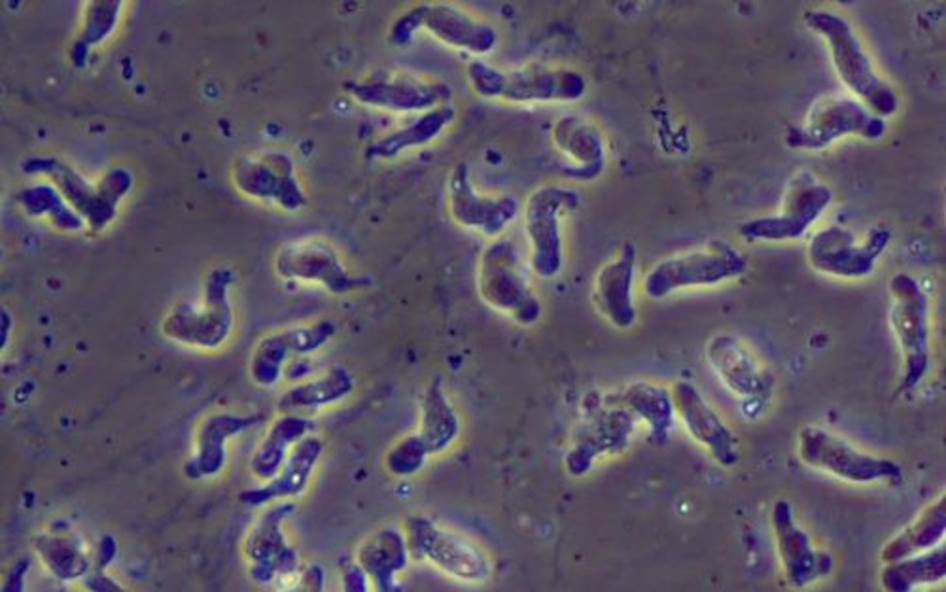
A microscopic view of the deadly Naegleria fowleri - CREDIT Centers for Disease Control and Prevention, National Center for Emerging and Zoonotic Infectious Diseases (NCEZID), Division of Foodborne, Waterborne, and Environmental Diseases/Centers for Disease Control and Prevention, National Center for Emerging and Zoonotic Infectious Diseases (NCEZID), Division of Foodborne, Waterborne, and Environmental Diseases
Pakistan Man Dies from ‘Brain-Eating Amoeba’ after Going for a Swim
By Samuel Lovett
Deputy Global Health Editor
Most people know that dirty water can cause a stomach upset but, as a recent case from Pakistan has shown, it can also lead to a parasitic infection of the brain.
A 30-year-old man died in Lahore this week after being infected with suspected Naegleria fowleri, a ‘brain-eating amoeba’ which is typically found in warm bodies of water, such as ponds, lakes, rivers, and hot springs.
The single-celled, microscopic organism causes naegleriasis, or primary amoebic meningoencephalitis (PAM) – a rare infection of the brain that often leads to death. Symptoms are meningitis-like and include headache, fever, nausea, vomiting and seizures.
It is the first time that a suspected Naegleria fowleri infection has been detected in Lahore, a city of more than 13 million.
Local media reports say the 30-year-old patient developed a headache and fever after going swimming in a pool. His symptoms lasted for four days.
The man spent one day in hospital in critical condition before passing away from a heart attack, reports said. Investigations are underway to confirm the presence of Naegleria fowleri.
In response to the case, health officials have advised people to use chlorinated water for domestic purposes. The Lahore District Health Authority has also deployed teams to investigate drinking water sources and swimming pools in the city.
Three other cases of Naegleria fowleri have been reported in Pakistan this year – all of which were based in Karachi. The country has the second highest prevalence of infections in the world, according to a study published last year in the Iranian Journal of Parasitology.
The paper said that hundreds of PAM cases have been reported in the last five decades; “most probably due to global warming-related environmental changes”.
Infections are mostly observed in hot summers as Naegleria fowleri proliferates rapidly at higher temperatures, the research added.
The amoeba cannot be spread from person to person or by drinking contaminated water. It travels up the nose and makes its way into the brain along the olfactory nerve, destroying brain tissue.
Britain has previously been hit by the infection. In 1978, a young girl contracted naegleriasis after swimming in the Roman Baths in Bath and later died. The facility has not been used for public bathing since. -The Telegraph

